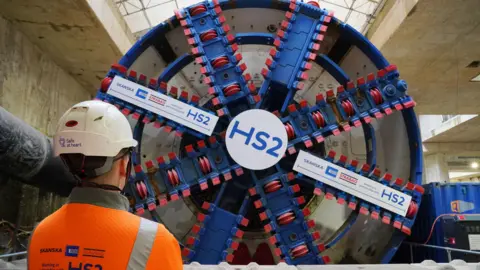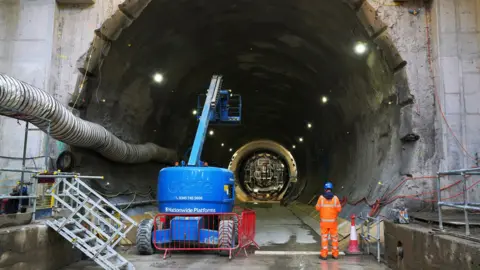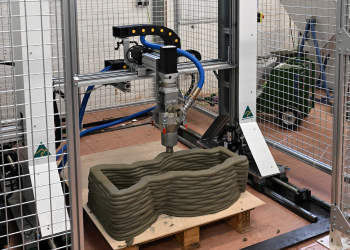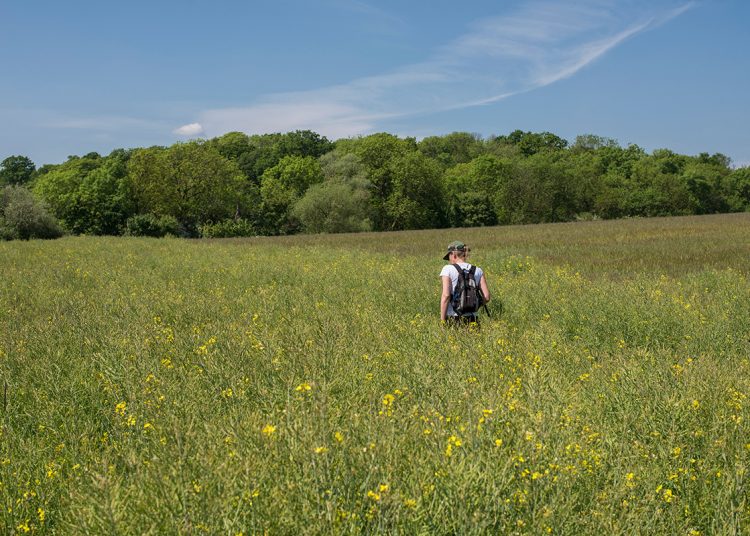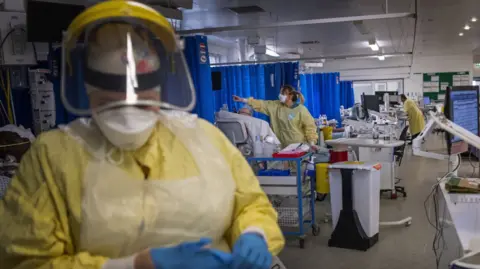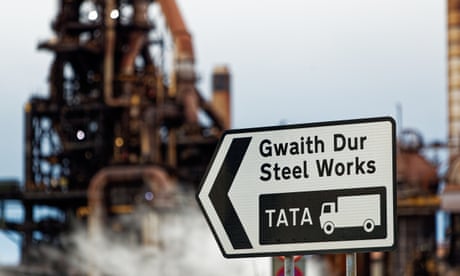In a wide-ranging statement to the House of Commons today, the Home Secretary detailed what she called a "collapse in controls" on net migration, asylum and border security under the previous Conservative government over the past five years.
Cooper said the Labour government is clear that net migration must come down. A forthcoming White Paper will set out the Government's plans to reduce immigration, including by linking the points-based system with new requirements for training in the UK.
"In the two years that the partnership was in place, just four volunteers were sent to Rwanda, at a cost of £700 million. That included £290 million paid to the Government in Kigali, and almost £300 million for staff, IT and legal costs. The result of that massive commitment of time and money was that 84,000 people crossed the channel from the day the deal was signed to the day it was scrapped. That so-called deterrent did not result in a single deportation or stop a single boat from crossing the channel," the Home Secretary stated.
Speaking for the Opposition, shadow Home Secretary Chris Philp accused the Home Secretary of deflecting blame while failing to address worsening issues since her party took office. Philp said Labour's first 150 days in government had seen an 18% increase in small boats crossings compared to the same period last year, and a "staggering" 64% increase on the 150 days immediately prior to the election. The shadow Home Secretary said Labour had cancelled the Rwanda deterrent before it had even started.
Philp also criticised the new £500,000 deal with Iraq to tackle people smuggling as insufficient and dismissed the Government's overall approach as "naive." While Philp agreed that legal migration numbers had been too high for decades, he credited measures introduced by the previous Conservative government for the recent 20% reduction in net migration and called for stronger, more effective reforms.
The Secretary of State for the Home Department
(Yvette Cooper)
With permission, Madam Deputy Speaker, I will make a statement on net migration, asylum and border security, and on the collapse in controls that took place over the last five years, the damage done as a result, and the action we are now taking to turn that around.
Last Thursday's official statistics show how over the last five years controls in the immigration and asylum systems crumbled, legal and illegal migration both substantially increased, the backlog in the asylum system soared, and enforcement of basic rules fell apart. Net migration more than quadrupled in just four years to a record high of nearly 1 million people, and it is still more than three times higher than in 2019. Dangerous small boat crossings rose from 300 people in 2018 to an average of over 36,000 a year in the last three years—a hundred-and-twentyfold increase. In just a few short years, an entire criminal smuggler industry built around boat crossings has been allowed to take hold along the UK border.
The cost of the asylum system also quadrupled to £4 billion last year. In 2019, there were no asylum hotels; five years on, there are more than 200. Returns of those with no right to be here are 30% lower than in 2010, and asylum-related returns are down by 20% compared with 14 years ago. That is the legacy we inherited from the previous Government, one that former Ministers have themselves admitted was shameful.
We should be clear that this country has always supported people coming here from abroad to work, to study or to be protected from persecution. That has made us the country we are—from the Windrush generation to the Kindertransport; from international medics working in our NHS to the families we have supported from Ukraine. But that is exactly why the immigration and asylum systems have to be properly controlled and managed, so that they support our economy and promote community cohesion, with rules properly respected and enforced, and so that our borders are kept strong and secure. None of those things have been happening for the last five years. The scale of the failure and the loss of control have badly undermined trust in the entire system, and it will take time to turn things around.
Let me turn to the changes that are needed in three areas. First, on legal migration, recent years have seen what the Office for National Statistics calls
"large increases in both work-related and study-related immigration following the end of travel restrictions and the introduction of the new immigration system after the UK left the EU."
Conservative Government reforms in 2021 made it much easier to recruit from abroad, including a 20% wage discount for overseas workers. At the same time, training here in the UK was cut, with 55,000 fewer apprenticeship starts than five years ago, and the number of UK residents not working or studying hit a record high of over 8 million. This was an experiment gone badly wrong, built on a careless free market approach that literally incentivised employers to recruit from abroad rather than to train or to tackle workforce problems here at home.
This Government are clear that net migration must come down. We are continuing with the visa controls belatedly introduced by the previous Government, including the higher salary threshold, the 20% discount and the restrictions on dependant visas for students and care workers, but we must go further to restore order and credibility to the system.
Since the election, we have set out new plans to ban rogue employers who breach employment laws from sponsoring overseas workers; we have reversed the previous Conservative Government's decision to remove visa requirements for a number of countries from which large numbers of people arriving as visitors were entering the UK asylum system instead; and we are reviewing visas further to prevent misuse.
However, we also need to overhaul the dysfunctional UK labour market that we inherited, including by bringing together the work of the Migration Advisory Committee, Skills England, the Department for Work and Pensions and the new Industrial Strategy Council to identify areas where the economy has become over-reliant on overseas recruitment, and where new action will be needed to boost training and support. That work will be at the heart of our new White Paper, showing how net migration must and will come down, as we set out new ways to link the points-based system with new requirements for training here in Britain.
Let me turn to the asylum system. Last week's figures showed how the previous Government crashed the asylum system in the run-up to the election. In their last six months in office, asylum decisions dropped by 75% and asylum interviews dropped by over 80%, so only a few hundred decisions were being taken every week instead of thousands. Caseworkers were deployed elsewhere and the backlog shot up. We have had to spend the summer repairing that damage, getting caseworkers back in place, restoring interviews and decisions, and substantially boosting returns. It will take time to deal with the added backlog and pressure on asylum accommodation that that collapse in decision making caused, but the swift action we took over the summer has prevented thousands more people from being placed in asylum hotels, saving hundreds of millions of pounds.
Today I am also publishing the full spending breakdown of the previous Government's failed Rwanda partnership. In the two years that the partnership was in place, just four volunteers were sent to Rwanda, at a cost of £700 million. That included £290 million paid to the Government in Kigali, and almost £300 million for staff, IT and legal costs. The result of that massive commitment of time and money was that 84,000 people crossed the channel from the day the deal was signed to the day it was scrapped. That so-called deterrent did not result in a single deportation or stop a single boat from crossing the channel. For the British taxpayer, it was a grotesque waste of money.
Since the election, we have swiftly redeployed many of the people who were working on fantasy planning for the Rwanda scheme to working instead on actual flights to return those who have no right to stay in the UK. That has helped to deliver nearly 10,000 returns since the election. Enforced returns are up by 19%, voluntary returns are up by 14%, illegal working visits are up by approximately 34%, and arrests from those visits are up by approximately 25%. I can tell the House that this new programme to tackle exploitation and ensure that the rules are enforced will continue and accelerate next year.
Let me turn to border security. Six years ago, fewer than 300 people arrived on dangerous small boats. Since then, an entire criminal industry has taken hold and grown, with routes stretching through France, Germany and beyond, from the Kurdistan region of Iraq to the money markets of Kabul. The criminals profit from undermining border security and putting lives at risk, and it is a disgrace that they have got away with it for so long.
Since the election, we have established the new Border Security Command, announced £150 million over the next 18 months for new technology, intelligence, and hundreds of specialist investigators working; struck new anti-smuggling action plan agreements with the G7, and bilateral agreements with Italy, Germany, Serbia and Balkan states; and increased UK operations with Europol and the Calais group. In recent weeks, international collaboration has led to high-profile arrests and shown the smuggling gangs that we will not sanction any hiding place from law enforcement.
I can tell the House today that we have gone further, with a major new international collaboration. The Iraqi Government and the Kurdistan Regional Government share our concerns about the people traffickers operating through their country who have helped to transport thousands of people across Europe and across the channel, but joint action to tackle those problems has previously been far too weak. That is why last week I visited Baghdad and Erbil to sign new co-operation agreements on border security, migration and organised crime. As part of those agreements, we will invest half a million pounds in helping the Kurdistan region to enhance its capabilities on biometrics and security, and in training Iraqi border staff to tackle organised immigration crime. We have also made new commitments on joint operations, information sharing, pursuing prosecutions and disruptions, and with further work on returns. Those landmark agreements are the first in the world for an Iraqi Government focused on playing their part in the world.
Most people in Britain want to see strong border security and a properly controlled and managed migration and asylum system where the rules are respected and enforced; one where we do our bit alongside other countries to help those who have fled persecution, but where those with no right to be here are swiftly returned; and where it is Governments, not gangs, who decide who can enter our country. For five years, none of those things has happened, and people have understandably lost faith in the entire system. We now have the chance to turn that around: to fix the chaos, bring net migration down, tackle the criminal gangs and prevent dangerous boat crossings; to restore order, control, and fair rules that are properly enforced—not through gimmicks, but through hard graft and serious international partnerships. I commend this statement to the House.


